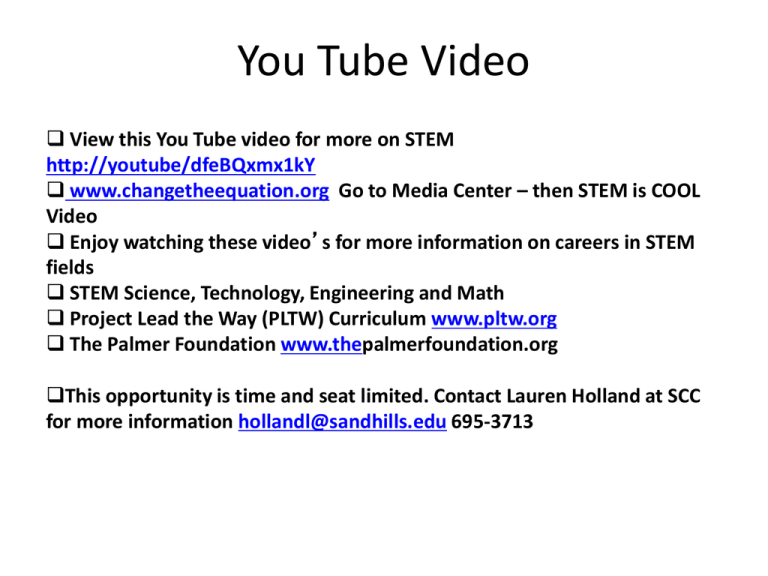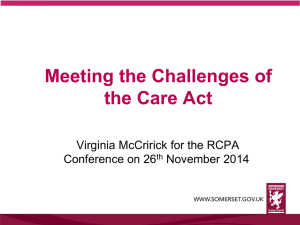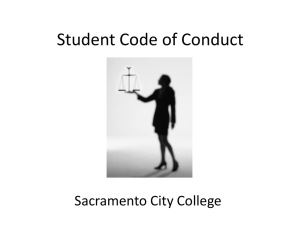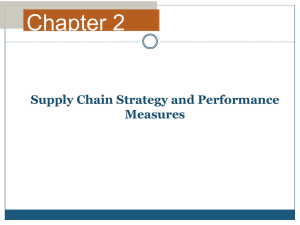SCC – Curiosity Rules - Sandhills Community College
advertisement

You Tube Video View this You Tube video for more on STEM http://youtube/dfeBQxmx1kY www.changetheequation.org Go to Media Center – then STEM is COOL Video Enjoy watching these video’s for more information on careers in STEM fields STEM Science, Technology, Engineering and Math Project Lead the Way (PLTW) Curriculum www.pltw.org The Palmer Foundation www.thepalmerfoundation.org This opportunity is time and seat limited. Contact Lauren Holland at SCC for more information hollandl@sandhills.edu 695-3713 SCC – Curiosity Rules Welcome to the Innovation Zone Explore the Innovation Zone at SCC Not just an innovative and rigorous STEM course but a pathway to the future. Sandhills Community College, Moore County Schools Project Lead the Way and the Palmer Foundation are partnering to bring Pathways to Engineering to high school students with classes at Sandhills Community College Fall 2011 Spring 2012 Become a Palmer Scholar PLTW classrooms are in more than 4,000 schools in all 50 states, serving more than 350,00 students and each classroom is an Innovation Zone. Pathway To Engineering High School/College Course Descriptions Fall 2011 SCC EGR 115 &115A 001 – Intro to Technology FALL 2011 Project Lead the Way Principles of Engineering (POE) oEGR 115 SCC (POE) 3 Credit Hours (2 Lecture/3 Lab) oEGR 115A SCC (POE) 1 Credit Hour ( 1 Lab) Monday – Friday (5 days) 3PM –3:50PM When a student passes this course and takes the End of Course test, the student receives 2 Quality Points to the students GPA = the same weight as AP classes = 6 points. SCC EGR 150 Introduction to Engineering Project Lead the Way Introduction to Engineering Design (IED) FALL 2011 oEGR 150 SCC (IED) 2 Credit Hours (1 Lecture/2 Lab) Monday, Wednesday and Friday 9:15AM – 10:05AM When a student passes this course and takes the End of Course test, the student receives 2 Quality Points to the students GPA = the same weight as AP classes = 6 points. Pathway To Engineering High School/College Course Descriptions Spring 2012 SCC CIV 125 – Civil Surveying/ CAD (Computer Aided Drafting) SPRING 2012 Project Lead the Way Principles of Engineering (POE) oCIV 125 SCC (POE) 3 Credit Hours (1 Lecture/6 Lab) oMonday – Friday (5 days) 3PM –3:50PM When a student passes this course and takes the End of Course test, the student receives 1 Quality Point to the students GPA = the same weight as an honors class = 5 points. SCC EGR 150 Introduction to Engineering Project Lead the Way Introduction to Engineering Design (IED) SPRING 2012 oEGR 150SCC (IED) 2 Credit Hours (1 Lecture/2 Lab) Monday, Wednesday and Friday 9:15AM – 10:05AM When a student passes this course and takes the End of Course test, the student receives 2 Quality Points to the students GPA = the same weight as AP classes = 6 points. Introduction to (Engineering) Technology EGR 115 & EGR 115A Fall 2011 & 2012 SCC EGR 115 / EGR 115A, Introduction to Technology and Lab FALL 2011/FALL 2012 Project Lead The Way Principles of Engineering (POE) 4 credit hours o EGR 115 SCC (POE) 3 Credit Hours (2 Lecture/3 Lab) oEGR 115A SCC (POE) 1 Credit Hour ( 1 Lab) Monday – Friday (5 days) 3PM –3:50PM Course Description: This course provides an introduction to drafting and instruction on the use of a programmable scientific calculator to work applied math problems. The major focus of the POE survey course of engineering exposes students to major concepts they’ll encounter in a postsecondary engineering course of study. Students employ engineering and scientific concepts in the solution of engineering design problems. They develop problem-solving skills and apply their knowledge of research and design to create solutions to various challenges, documenting their work and communicating solutions to peers and members of the professional community. Criteria for student selection: To be successful in this class, a student should be a high school junior or senior with an interest in entering the Architectural, Civil Engineering, Surveying or Construction Management fields, and they should be enrolled in, or have taken an algebra course. Introduction to (Engineering) Technology EGR 115 & EGR 115A Fall 2011 & 2012 SCC EGR 115 / EGR 115A, Introduction to Technology and Lab/ Project Lead The Way Principles of Engineering (POE) EGR 115/115A Transfer Information: This class IS NOT a college transfer course, however, their credit can be used toward the SCC A.A.S. degrees in Civil Engineering, Architecture and Surveying, and they are transferable for those that choose our 2+2 Engineering Technology transfer options (those interested in this path can contact Professor Ed Spitler spitlere@sandhills.edu SCC). SCC is currently offering the EGR 115 H01 and EGR 115A H01 courses in a hybrid format. This course has 2 lecture hours a week that will be delivered traditionally, and 3 weekly lab hours delivered traditionally and through online assignments. This course receives both high school (2 QP = AP Course) and college credit. This course was offered in Fall 2011 and will be offered again in Fall 2012. Civil/Surveying CAD (Computer Aided Design) CIV 125 Spring 2012 SCC CIV 125 Civil/Surveying CAD (Computer Aided Design) and Lab Spring 2012 Project Lead The Way Principles of Engineering (POE) 3 credit hours o EGR 115 SCC (POE) 3 Credit Hours (1 Lecture/6 Lab) o Monday – Friday (5 days) 3PM –3:50PM Course Description: This course introduces civil/surveying computer-aided drafting (CAD) software and is a course that is required for graduation from both the A.A.S. Civil Engineering Technology and the A.A.S. Surveying Technology degree programs in the North Carolina Community College System. The major focus of the POE survey course of engineering exposes students to major concepts they’ll encounter in a postsecondary engineering course of study. Students employ engineering and scientific concepts in the solution of engineering design problems. They develop problem-solving skills and apply their knowledge of research and design to create solutions to various challenges, documenting their work and communicating solutions to peers and members of the professional community. Criteria for student selection: To be successful in this class, a student should be a high school junior or senior with an interest in entering the Architectural, Civil Engineering, Surveying or Construction Management fields, and they should be enrolled in, or have taken an algebra course. Civil Surveying/CAD (Computer Aided Design) CIV 125 Spring 2012 SCC CIV 125, Civil/Surveying CAD Project Lead The Way Principles of Engineering (POE) CIV 125 Transfer Information: This class IS NOT a college transfer course, however, the credit can be used toward the SCC A.A.S. degrees in Civil Engineering, Architecture and Surveying, and they are transferable for those that choose our 2+2 Engineering Technology transfer options (those interested in this path can contact Professor Ed Spitler at SCC). SCC is currently offering the CIV 125 course in a hybrid format. This course has 1 lecture hour a week that will be delivered traditionally and 6 weekly lab hours delivered traditionally and through online assignments. This course receives both high school (1 QP = Honors Course) and college credit. CIV 125 is offered in Spring 2012. The Civil Engineering Technology Curriculum The Civil Engineering Technology Curriculum provides the application of relevant theory of engineering needed by technicians to carry out planning and supervisory tasks in the construction of transportation systems, residential and commercial buildings, bridges, dams, and water and wastewater treatment systems. Course work includes the communication and computational skills required to support the fields such as materials testing, structures, estimating, project management, hydraulics, environmental technology, and surveying. Additional course work will cover the operation of computers and application software including CAD (computer-aided drafting). Graduates should quality for technician-level jobs with both public and private engineering, construction, and surveying agencies. Because the use of computers is integral to this curriculum, some courses are delivered in an online format. Introduction to Engineering EGR 150/IED SCC EGR 150 Introduction to Engineering / Project Lead the Way Introduction to Engineering Design (IED) 2 Credit Hours EGR 150 H02 - MWF 9:15-10:05 Course description: This course is an overview of the engineering profession. Topics include goal setting and career assessment, ethics, public safety, the engineering method and design process, written and oral communication, interpersonal skills and team building, and computer applications. Upon completion, students should be able to understand the engineering process, the engineering profession, and utilize college resources to meet their educational goals. This course has been approved for transfer under the Comprehensive Articulation Agreement as a premajor and/or elective course requirement . The major focus of the IED course is to expose students to the design process, research and analysis, teamwork, communication methods, global and human impacts, engineering standards and technical documentation. Students use 3D solid modeling design software to help them design solutions to solve proposed problems and learn how to document their work and communicate solutions to peers and members of the professional community. Introduction to Engineering EGR 150/IED SCC EGR 150 Introduction to Engineering / Project Lead the Way Introduction to Engineering Design (IED) Criteria for Student Selection: EGR 150, Intro to Engineering, is a college-transfer class guaranteed to be accepted by any of the four UNC engineering schools as meeting their "Introduction to Engineering" requirement for freshmen and sophomores. To be successful in this class, a student should be a high school junior or senior and have excellent math skills at least at the pre-calculus algebra level. They should have a real interest in pursuing an engineering degree at the university level, which means that they will be expected to complete calculus I, II, and calculus-based physics by the end of their college sophomore year. They should have the capability of working alone and in small groups on engineering projects which will require independent thought and action as well as the ability to construct working engineering models, such as model bridges or vehicles. Comparison Engineering Technology (EGR 115) & (CIV 125) vs. Engineering Design (EGR 150) For detailed information, visit the comparison discussion at www.et.uncc.edu An engineering technology (ET) graduate is an implementer. Emphasis of curriculum is on applying current knowledge and practices to the solution of specific technical problems and standard design problems New graduates would most likely enter industry in construction, product design, development, testing, technical operations, or technical services and sales. Graduates often pursue graduate study in engineering management, construction management, business administration, or similar programs. Graduates are eligible for professional registration in most states with wide variation in licensing requirements. More likely to get a ‘hands-on’ laboratory, testing, construction, or in-thefield job. Coursework includes algebra, trigonometry, applied calculus and college level sciences; level of math is not as in-depth as engineering programs while Comparison Engineering Technology (EGR 115) & (CIV 125) vs.. Engineering (EGR 150) For detailed information, visit the comparison discussion at www.et.uncc.edu An engineering graduate is an innovator. Emphasis of curriculum is on developing new methods of analysis and solutions for open-ended, complex and unique design problems. New graduates would most likely aspire to an entry-level position in conceptual design, systems engineering, product research or development. Graduates are readily accepted to graduate school for advanced study in engineering. Graduates are eligible for professional registration in all states through examination and documented experience. More likely to get a research, development, or design job. Coursework includes multiple semesters of calculus and calculus–based theoretical university level science courses during the first two years followed by engineering science, analysis and design. Qualifications to take SCC courses under the new Career and College Promise program (Effective Jan. 2012): • You must be a junior or senior. • You must also have a minimum weighted high school GPA of 3.0 in order to participate. (For CIV 125, students may request a waiver of the minimum GPA requirement from their principal.) Qualifications to Take SCC courses: • You must continue to make progress towards high school graduation. • You must maintain a minimum GPA of 2.0 in all college coursework. Important Information: • High school students enrolled currently (fall semester 2012) in a STEM (science, technology, engineering or math) course at Sandhills and who finish the course with a grade of “C” or better are grandfathered into the new program and do not have to meet the minimum GPA requirement or placement test requirements. Qualifications to take EGR 150: • You must demonstrate college readiness per test scores on one of the following tests (must qualify in all three areas)*: *SCC also accepts scores for the PLAN, ASSET and COMPASS test Test PSAT Accuplacer SAT ACT English 49 Placement into college level English 500 18 Reading 50 Placement into college level English 500 21 Math 50 Placement into college 500 22 How to enroll for the 2012 spring semester • • • Complete a Sandhills application. Come to the Sandhills campus to take the Accuplacer placement test from now until October 27. (See testing coordinator during the presentation on your campus for testing hours and additional information.) You must apply to the college and take the Accuplacer (or submit other qualifying test scores) prior to the October 27 deadline, if you wish to take classes during the 2012 spring semester. How to enroll for the 2012 spring semester….. • Let your counselor know that you want to enroll in one of the following engineering courses for the spring 2012 semester, which begins in January: EGR 150 – Introduction to Engineering CIV 125 – Civil/Surveying CAD Computer Aided Design How to enroll for the 2012 spring semester….. • Once you have been qualified and registered for classes, you will receive a confirmed schedule in the mail from Sandhills. • Questions? Contact Lauren Holland Director of High School Relations/ Moore County: 695-3713 or hollandl@sandhills.edu





